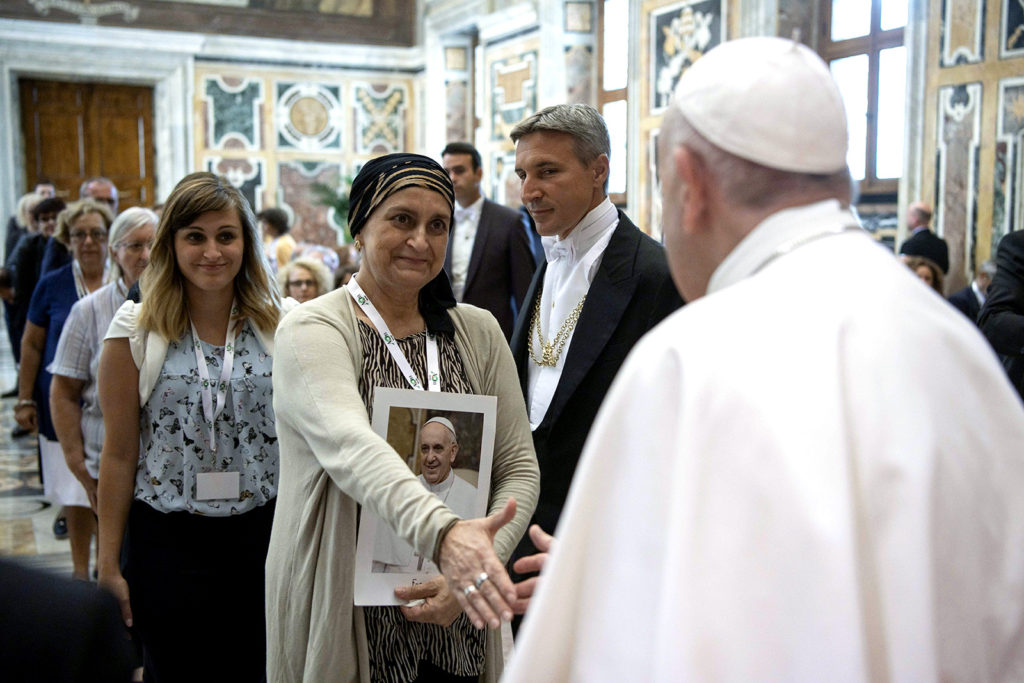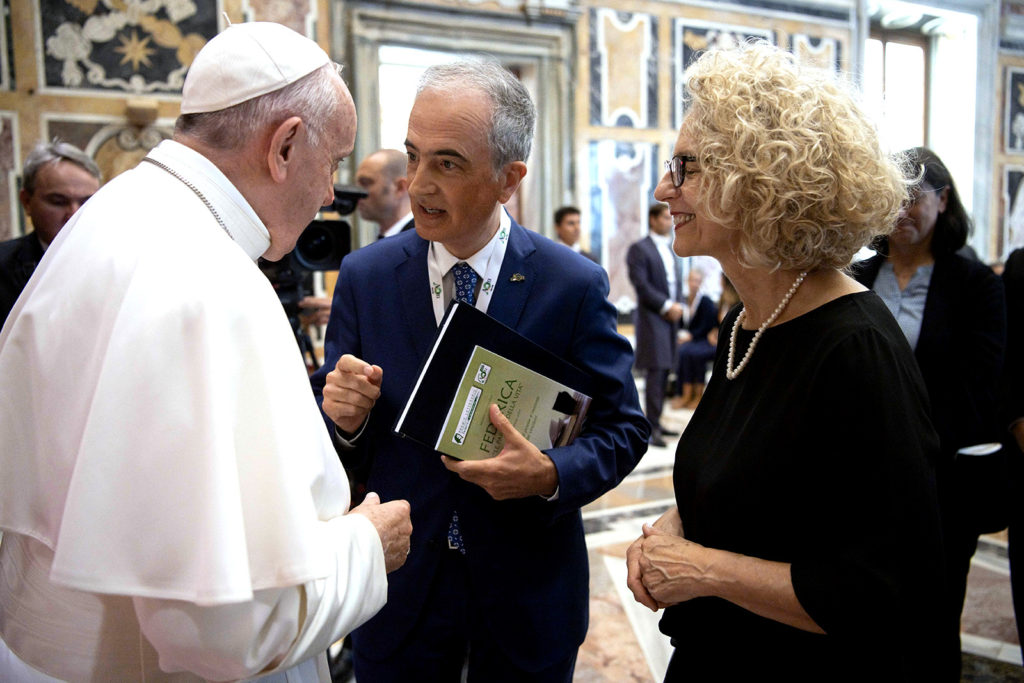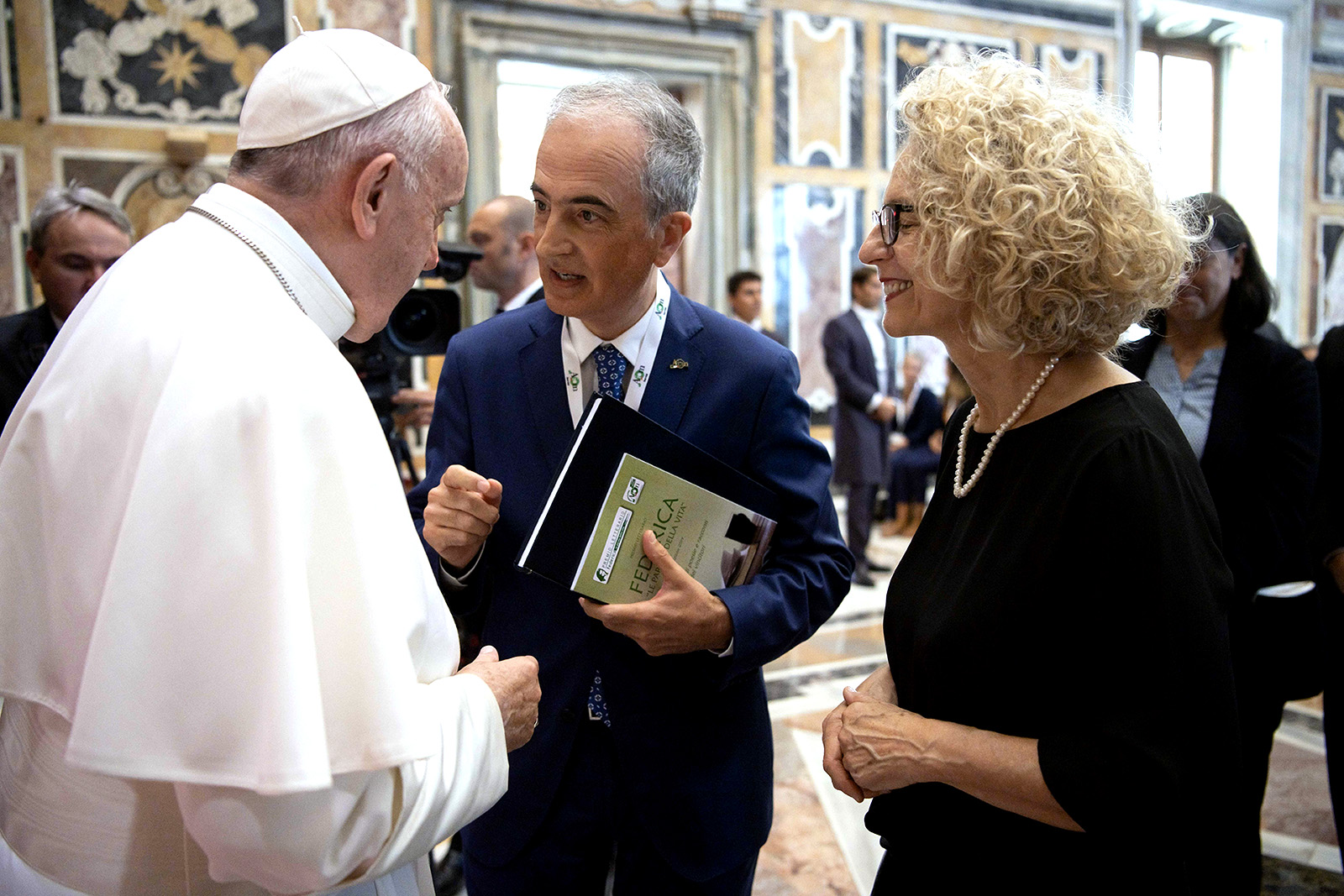
VATICAN CITY (CNS) — Medical advancements do not help if they treat people as objects or when they are applied only to those people who are not considered a burden and “deserve” to be helped, Pope Francis said.
In addition, euthanasia, which is legal in a number of places, “only seemingly promises to promote personal freedom; in reality it is based on a utilitarian view of the person, who becomes useless or may be equated with a cost if, from a medical point of view, there is no hope for improvement or pain can no longer be avoided,” he said.
The pope was speaking Sept. 2 to doctors, patients and members of the Italian Association of Medical Oncology. The pope praised the nonprofit group for its work in promoting cancer prevention, personalized care for patients and cooperation among all medical and scientific fields for the common good.
This customized and multifaceted kind of oncological care focuses not just on the illness, but also on the patient, utilizing medical advancements to serve the person, he said.
“Technology is not at the service of people when it reduces them to things, when it distinguishes between who still deserves to be cured and who doesn’t because they are considered to be just a burden” and something to be “thrown away,” the pope said.
After criticizing the practice of euthanasia, the pope underlined the importance of accompanying patients throughout their illness and providing palliative care and hospice, which all help contribute to “a culture and practices more attentive to the value of every person.”

He asked members of the group to resist becoming discouraged by the lack of understanding they may face or by the “relentless proposal for more radical and hasty paths” to take.
Pope Francis encouraged them to find ways to always “translate hope” and offer it even in the most difficult cases.
He also recognized the important role of raising greater public awareness about cancer prevention, regular testing and healthy habits.
“The best and truest prevention, in fact, is a healthy environment and a lifestyle that respects the human body” and how it works, he said.
“As we know, this does not always depend on individual choices, but also on the places where people live, especially in major city centers, that subject the body to constant stress” because of their fast-paced lifestyle and exposure to pollutants.
This, too, highlights the need to take care of the natural world, “our common home which we have to respect so that it respects us back,” he said.
“Safeguarding the environment and the fight against tumors then become two sides of the same problem, two complementary aspects of the same battle of civilization and humanity.”
— By Carol Glatz, Catholic News Service.







